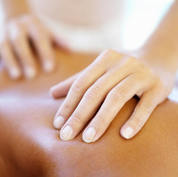
The Bowen Technique (Bowtech) is a gentle but powerful technique that works by balancing the autonomic nervous system, which controls over 80% of our bodily functions without us even being aware of it. Things like breathing and keeping our hearts beating!
Amanda interviews her local practitioner so see what makes this therapy so useful for the treatment of back issues.
1 Comment
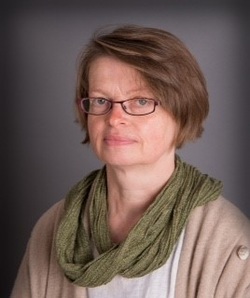 Doris Prügel-Bennett (MSc) is a dually qualified professional. As a teacher of the Alexander Technique (STAT), she was fortunate to take part in research projects as part of a national research project into chronic lower back pain, which were conducted by Southampton University, the Society of Teachers of the Alexander Technique (STAT), and the NHS. The positive results of these research projects have been published in the British Medical Journal in 2008, and in conjunction with supervised physiotherapy in 2014. Since 2003 she has been an Associate Lecturer at Southampton Solent University. She also accompanies women through pregnancy and birth as a Doula with the objective to facilitate a physically and emotionally best experience. Doris is committed to personal and professional development and ethical codes, laid out by the Society of Teachers of the Alexander Technique (STAT) and as a psychotherapist with the UK council for Psychotherapists. She offers workshops and presentations in industry, private organizations and institutions of higher education, nationally and internationally. Doris’s private practice is situated in Eling/Totton, Fenwick2 Community Health and Well Being Centre in Lyndhurst, Pikes Hill/New Forest, Central Southampton. 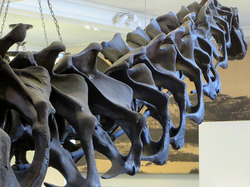 The Alexander Technique has been practiced all over the world for over 100 years. F. M. Alexander (1869 -1955) developed a philosophy and hands-on procedures that invite a process of awareness in activity and facilitate change. This article looks at the way the practice can benefit sufferers of back pain and how it can be used as a preventative.  Our back is our body’s support system and metaphysically problems in this area can be due to requiring more support in a certain area of life. The upper back is often linked to a feeling of being unloved and maybe more emotional support is required from a family member or friend. Problems in the middle back often arise with feelings of guilt and problems with the lower back are associated with financial worry and feeling unsupported in this area of life. The stiffness and tension in the neck and cervical spine is often linked with inflexibility in thinking, and stubbornness. 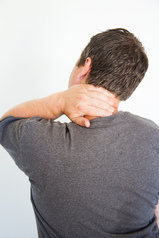 Hours sitting at the desk day after day can certainly take its toll on our posture and physical tension. With the Feldenkrais method you can bring greater awareness to how you are sitting. You can learn where you habitually hold tension and how to break habits. The Feldenkrais method takes you through a series of very gentle movements which helps your brain to relearn how to move and work with ease.  People come to a Yoga class for a variety of reasons; physical, mental, emotional and/or spiritual. Many people come along because their health care provider has suggested it. I am going to address those who will benefit from Yoga to keep their back healthy. Now the body parts are all joined so if there is a misalignment with, for example, the knee, this will affect the way the person walks. This in turn will have that person holding themselves in positions to protect the knee. Over time, if the knee has not been corrected then stress of different parts of the body will be affected. 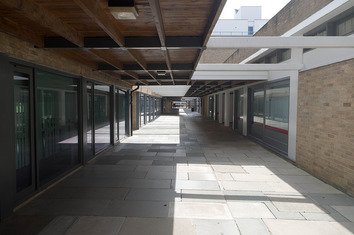 Regular back ache is like toothache, or earache, there seems to be absolutely nothing you can do to alleviate the constant, nagging pain. Sitting down, laying down, hanging from the rafters like a bat. Sciatica is the worse, the electric pain one side of your lower back that shoots electric shocks down your leg, can’t get comfortable, even in bed when twitchy leg sets in. 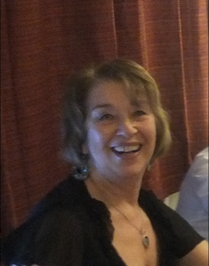 Gill Taylor is a qualified Yoga Teacher, Laughter Yoga Leader Teacher, and Advanced EFT and Master NLP and Life Retuning Practitioner Reactionary. Qualifying as a Yoga teacher for adults and children with the British Wheel of Yoga, Gill has been interested in Yoga since her teens. She has taught Yoga to adults since 1991 and children since 2001 and is also a BWY student assessor. 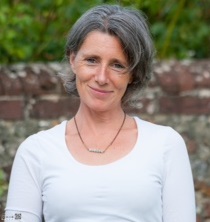 Jane Watson qualified as a Feldenkrais practitioner after a four year training in 1999. She came to the Feldenkrais Method after a career in dance and theatre working as a performer and director. Through these studies Jane built an understanding of the body, and how the physical, mental and emotional selves interact and relate to each other. |
The Holistic Life CoachHolistic & Natural Solutions for Health and Wellbeing Categories
All
Archives
March 2018
|
COOKIE POLICYWe use cookies on this site to help us improve your experience. If you wish to understand fully how we use these, click through for our 'cookie policy'.
PRIVACY POLICY |
disclaimerAll material on this website is provided for your information only and may not be construed as medical advice or instruction. |
Contact UsSubscribeJoin our mailing list today!
|
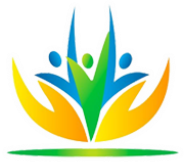

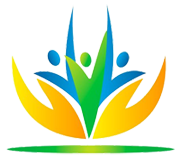
 RSS Feed
RSS Feed